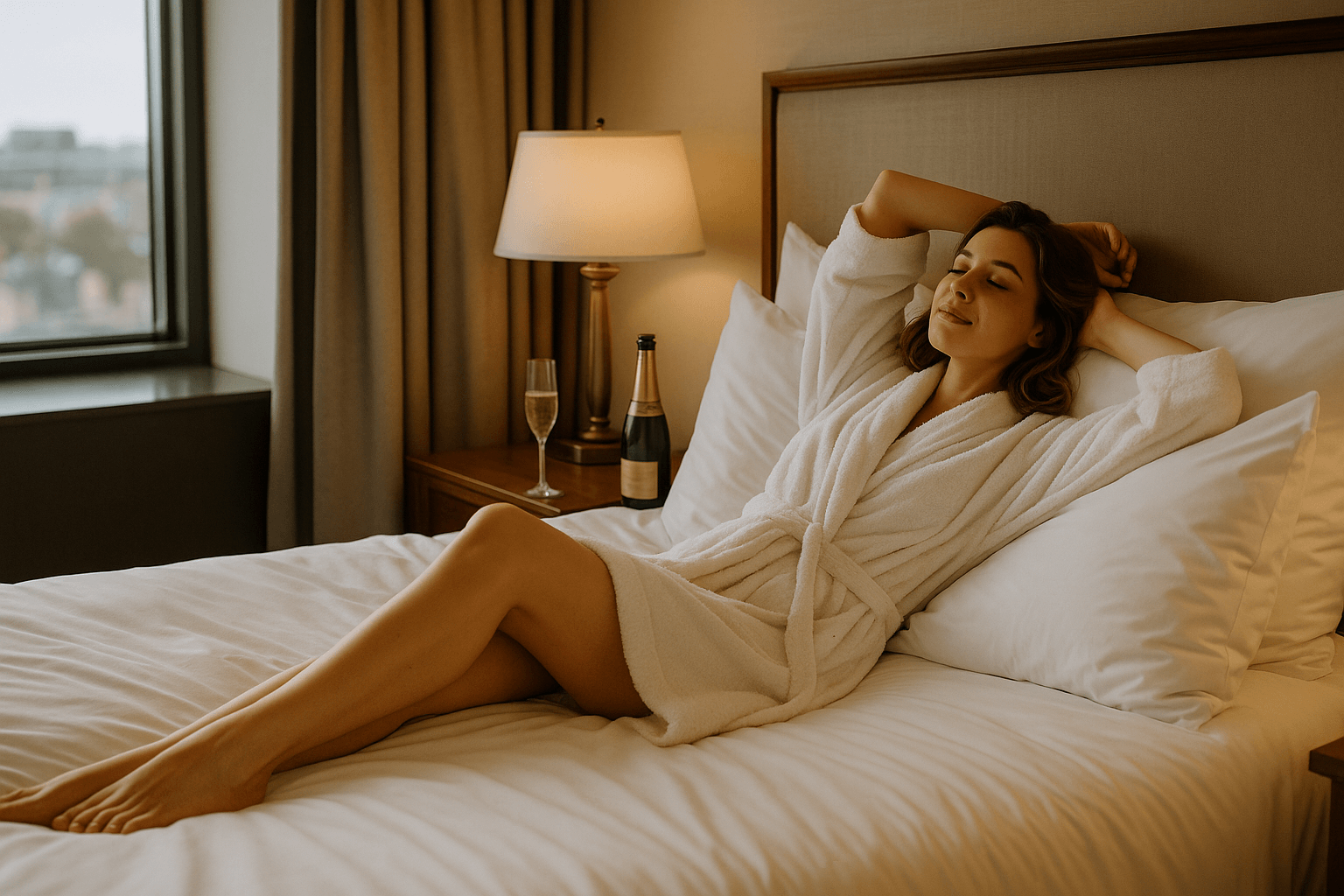CN takes a sensory and psychological dive into our love for hotel stays, whether for an event or a business trip and why we often sleep better away from home.
Is it the crisp white sheets?
Hotels intentionally invest in premium materials: high-thread-count linens, fluffy duvets, and perfectly plumped pillows. These sensory luxuries send signals to the brain that say ‘you’re being taken care of.’
Psychologically, this taps into the idea of ‘perceived safety and softness’ a physical cue that it’s safe to relax.
According to Forbes, 73% of people say they sleep better in hotels. The survey, conducted by OnePoll on behalf of Hotels.com in February 2022, polled 2,000 U.S. adults who had stayed in a hotel at least once in the past five years. Among them, 35% attributed their improved sleep to fewer noise interruptions in hotel rooms.
Is it borrowed luxury and escapism?
Supporting this, the same survey in Forbes found that 35% of respondents said escaping worries and responsibilities at home contributed to better sleep in hotels. While responses differed with 53% of women and 43% of men reporting better rest, the consistent theme was that hotel environments offer a meaningful improvement over home surroundings.
This idea is deeply rooted in psychology. When you walk into a hotel room, you’re stepping into a neutral, responsibility-free environment. There are no laundry baskets in sight. No dishes to do. No clutter whispering for your attention. This mental detachment from your everyday routine — sometimes called “contextual detachment” gives your brain permission to fully unwind. It’s not just pampering; it’s psychological relief.
What about the view?
The view matters more than we realise. It’s not just a pretty backdrop, it’s a symbol of possibility, aspiration, and escape. Waking up to a skyline, a seascape, or even a quiet courtyard reframes your perspective. It pulls you out of the domestic and into the cinematic. In fact, the view from a hotel window often becomes part of the memory. It can define whether your stay felt ordinary or extraordinary. The psychology of place tells us that unfamiliar, beautiful environments increase dopamine — that little hit of joy you get from seeing the Eiffel Tower or a city twinkling below.
Why do we sleep better in a hotel?
Many of us do, and not just because of the sheets. Hotels are purpose-built for rest. They use blackout curtains, soundproofing, neutral colour palettes, and perfect climate control to create an ideal sleep environment. These elements remove the usual disruptions you might face at home. While some experience the ‘first-night effect’ (where unfamiliarity causes lighter sleep), many actually rest deeper in hotels due to the intentional design and mental distance from stress.
Why do we keep coming back?
Hotels aren’t just places to stay, they’re portals. They are carefully curated to help us feel special, to soothe our senses, and to offer a version of life just a little more beautiful than the one we live day-to-day.















